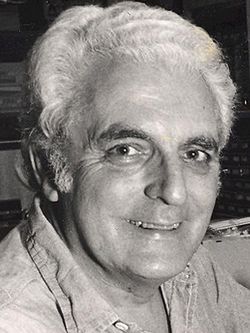


Cause of death: brain cancer
Robert Arthur Moog ( MOHG; May 23, 1934 – August 21, 2005) was an American engineer and electronic music pioneer. He was the founder of the synthesizer manufacturer Moog Music and the inventor of the first commercial synthesizer, the Moog synthesizer, which debuted in 1964. In 1970, Moog released a more portable model, the Minimoog, described as the most famous and influential synthesizer in history. Among Moog's honors are a Technical Grammy Award, received in 2002, and an induction into the National Inventors Hall of Fame.
By 1963, Moog had been designing and selling theremins for several years while working toward a PhD in engineering physics at Cornell University. He developed his synthesizer in response to demand for more practical and affordable electronic-music equipment, guided by suggestions and requests from composers. Moog's principal innovation was the voltage-controlled oscillator, which uses voltage to control pitch. He also introduced fundamental synthesizer concepts such as modularity, envelope generation and the pitch wheel. He is credited with introducing synthesizers to a wider audience and influencing the development of popular music.
Moog pursued his work as a hobby, and he is regarded as a poor businessman. His only patent was on his transistor ladder filter design; commentators have speculated that he would have become extremely wealthy had he patented his other innovations, but that their availability in the public domain helped the synthesizer industry flourish.
In 1971, Moog sold Moog Music to Norlin Musical Instruments, where he remained as a designer until 1977. In 1978, he founded the company Big Briar, and in 2002 he renamed it Moog Music after reacquiring the rights to the name. In later years, Moog taught at the University of North Carolina at Asheville and continued designing instruments for the revived Moog Music. He died at the age of 71 in Asheville from a brain tumor.
Source : Wikipedia